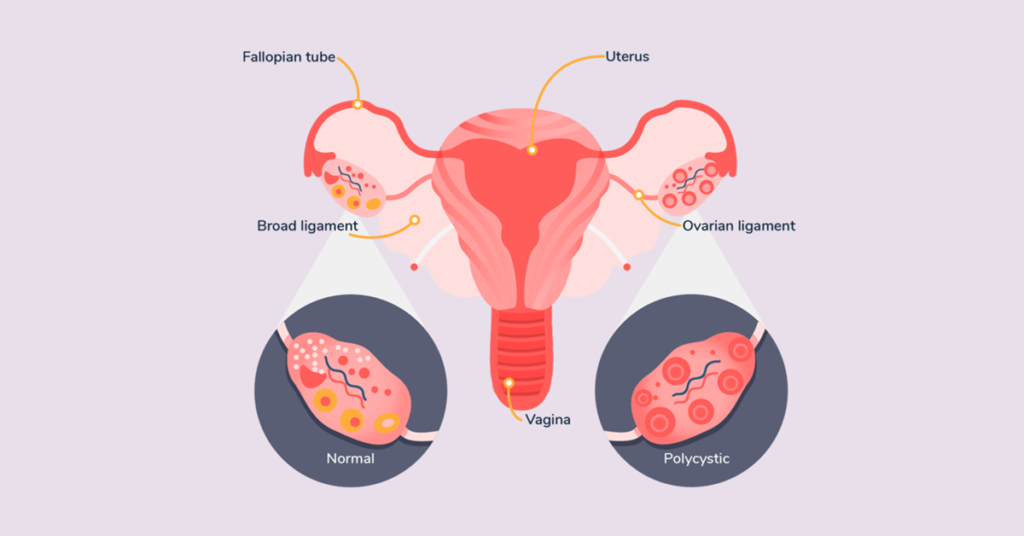PCOS: Impact On Overweight Women And Fertility


Polycystic Ovary Syndrome (PCOS) is a common hormonal disorder that affects many women worldwide. It is particularly prevalent in overweight and obese women. This article explores the relationship between PCOS, overweight, and fertility. It highlights the prevalence of PCOS in overweight women and its impact on their reproductive health.
This article aims to unpack the relationship between Polycystic Ovary Syndrome (PCOS) and obesity. This familiar yet often misunderstood health issue affects a significant portion of the female population. The prevalence of PCOS is markedly higher in overweight women, leading to complications that can significantly affect fertility. This article looks into the underlying hormonal and metabolic mechanisms that link obesity and PCOS but also studies how these conditions impact a woman’s reproductive health. It also provides insights for those seeking to navigate the challenging path toward conception amid the complexities of PCOS and obesity.
1. Understanding Polycystic Ovary Syndrome (PCOS):
a. Definition and Symptoms:
PCOS is characterized by irregular menstrual cycles, excess androgen levels, and the presence of ovarian cysts.
b. Causes and Risk Factors:
PCOS can have various causes, including genetic factors, insulin resistance, and hormonal imbalances. There are multiple risk factors associated with PCOS, particularly the increased prevalence in overweight women.
2. Prevalence of PCOS in Overweight Women:
a. Statistical Data:
There are research studies that reveal a higher prevalence of PCOS in overweight and obese women than those with average weight.
b. Impact of Obesity on PCOS:
There are certain mechanisms through which obesity can contribute to developing and aggravating PCOS. The role of adipose tissue in hormonal imbalances and insulin resistance should be kept in mind.
3. The Link between PCOS, Overweight, and Fertility:
a. Hormonal Imbalances:
PCOS disrupts the delicate hormonal balance. It particularly increases levels of androgens such as testosterone, which can affect ovulation and fertility.
b. Ovulation Dysfunction:
Hormonal imbalances caused by PCOS can lead to irregular or absent ovulation, reducing the chances of conception. PCOS also has an impact on the release of mature eggs from the ovaries.
c. Insulin Resistance:
There is a correlation between insulin resistance, PCOS, and overweight. Also, insulin resistance can disrupt normal hormone production and affect fertility outcomes.
4. Managing PCOS and Improving Fertility in Overweight Women:
a. Weight Management:
It is very important to lose weight and make lifestyle modifications to manage PCOS symptoms and improve fertility. Women can discuss strategies for achieving and maintaining a healthy weight with their doctor.
b. Balanced Diet:
A balanced diet has a very important role in managing PCOS-related weight gain and supporting hormonal balance. Also, it is essential to consume nutrient-rich foods and control carbohydrate intake.
c. Regular Exercise:
Regular physical activity helps reduce insulin resistance, improve ovulation, and enhance fertility. It not only helps the body physically but also brings peace to the mind.
d. Medications and Medical Interventions:
There are various medications that may be prescribed to manage PCOS symptoms and enhance fertility outcomes. Some of them include oral contraceptives, insulin-sensitizing drugs, and other hormonal interventions.
5. Seeking Professional Guidance:
a. Consultation with Doctors:
Overweight women with PCOS should definitely seek guidance from doctors specializing in reproductive health and endocrinology. It is very important for them to have regular check-ups and monitoring.
b. Fertility Specialists:
It is also important to consult fertility specialists for personalized treatment plans and assisted reproductive technologies if necessary. Discussing options such as ovulation induction and in vitro fertilization (IVF) will increase the chance of conception.
6. Emotional Support and Self-Care:
a. Coping with PCOS:
There are some emotional and psychological impacts of PCOS on women. They should consult doctors for strategies to help them cope with the challenges. Women can also seek support from their loved ones and support groups.
b. Self-Care Practices:
It is very important to practice self-care, stress management, and maintain a positive mindset while managing PCOS and fertility concerns. Doctors can also recommend relaxation techniques, mindfulness, and self-care activities to help with the situation.
PCOS is a prevalent hormonal disorder significantly affecting fertility, especially in overweight women. By understanding the relationship between PCOS, overweight, and fertility, women can take steps to manage their condition, improve their health, and enhance their chances of conception. Through weight management, balanced nutrition, exercise, and professional guidance, women with PCOS can optimize their reproductive health. Professional guidance can also help them embark on their journey to parenthood with confidence.



